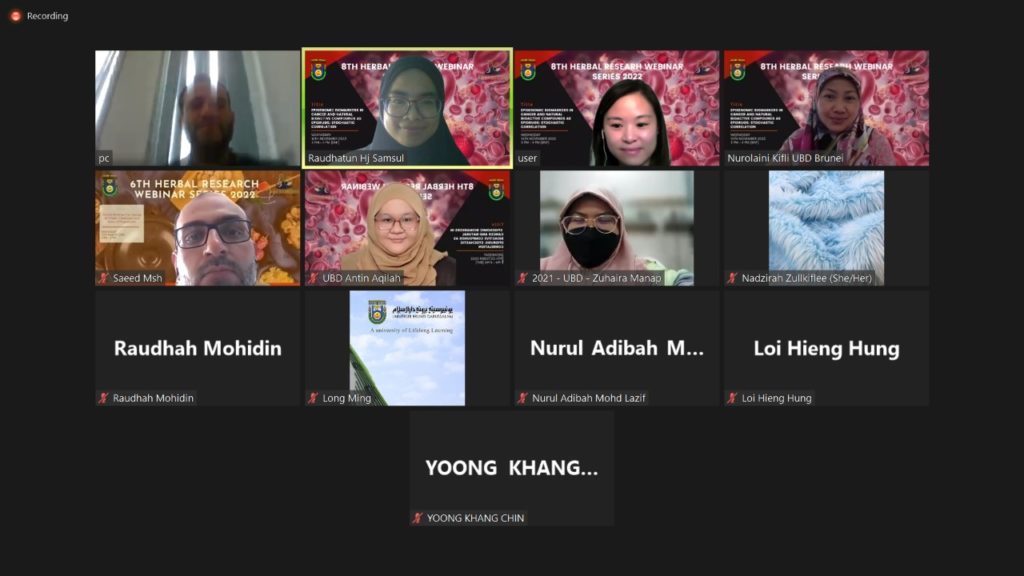On 16th November 2022, the Herbal Research Group of Universiti Brunei Darussalam (UBD) held the 8th Herbal Research Webinar Series 2022 virtually via Zoom. As the guest speaker of the webinar series, Professor Abdelhakim Bouyahya from the Faculty of Sciences, Mohammed V University, Rabat, Morocco presented a lecture on “Epigenomic Biomarkers in Cancer and Natural Bioactive Compounds as Epidrugs: Stochastic Correlation”. The event was attended by some 20 participants from various faculties and departments of UBD.
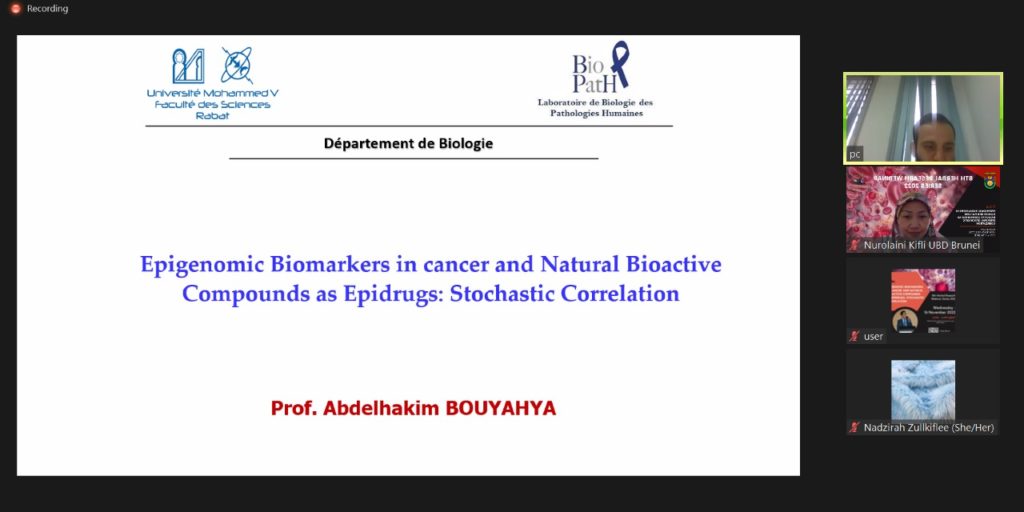
The talk began with an introduction on cancer and the involvement epigenetics and gene expression as the main hallmarks of cancer and cell transformation. Professor Bouyahya explained in detail the regulatory effects of several epigenetic enzymes on gene expression via various mechanisms including DNase1 hypersensitive sites, nucleosome positioning, histone modification and DNA methylation. He indicated that the regulators, such as histone deacetyles transferases (HDACs) and histone acetyles transferases (HATs) as well as methyltransferase and demethylase that are highly involved in histone modification and gene expression, are some of the main biomarkers of cancers given that the activation of the enzymes would lead to the recruitment of other enzymes and inhibitors (eg trithorax and polycomp complexes), which ultimately activates or represses gene expression to cause cell transformation. As an example, DNA-methyltransferase-3-like (DNMT3L), which is involved in the maintenance of cytosine methylation, has been associated with the pathophysiology of leukaemia and thus characterized as a biomarker for the disease.
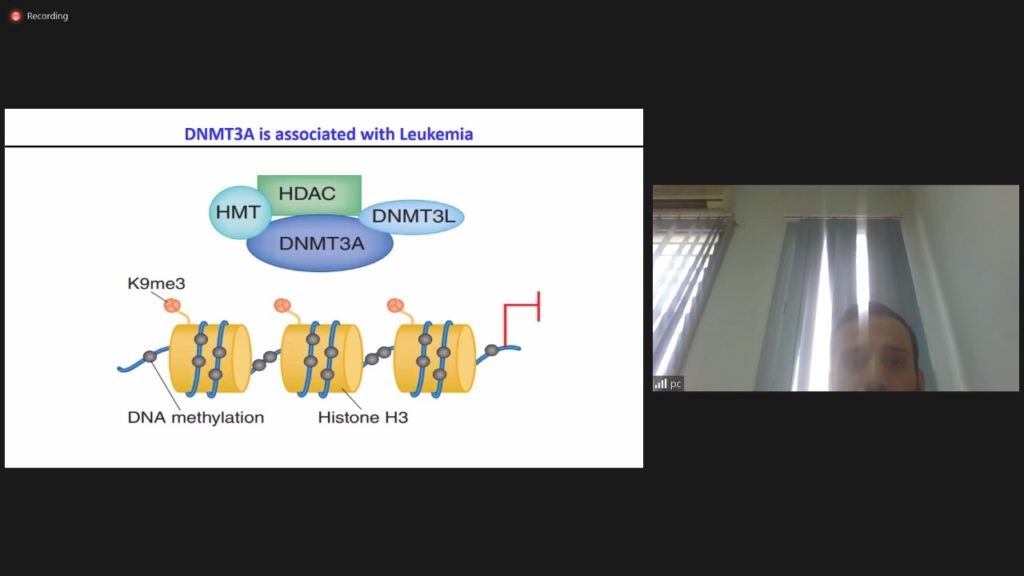
To further his explanation on epigenetic mechanisms, Professor Bouyahya described the events leading up to chromatin change as stochastic as the sequence of events does not obey a linear order. He explained that, although DNA methylation can recruit the enzymes involved in histone modification and influence nucleosome positioning and thus chromatin change, some histone modification enzymes can also recruit DNMTs that are involved in DNA methylation to alter gene expression and eventually chromatin repression as well.

Moving on, he discussed the various definitions and aspects of epigenetic biomarkers, and the main biomarkers related to epigenetic dysregulation. He showed that mutations in the DNMT3A or TET enzymes could lead to acute myeloid leukaemia (AML) and other forms of myeloid malignancies or leukaemia. Mutation in isocitrate dehydrogenase 1/2 (IDH1/2 – involved in Kreb’s Cycle) was also shown to cause aberration in the latter enzyme as mutant 1DH1/2 would produce the TET2 inhibitor, 2-hydroxyoglutarate, instead of the TET2 co-factor, 2-ketoglutarate, and impede the normal functions of TET2 in DNA demethylation.
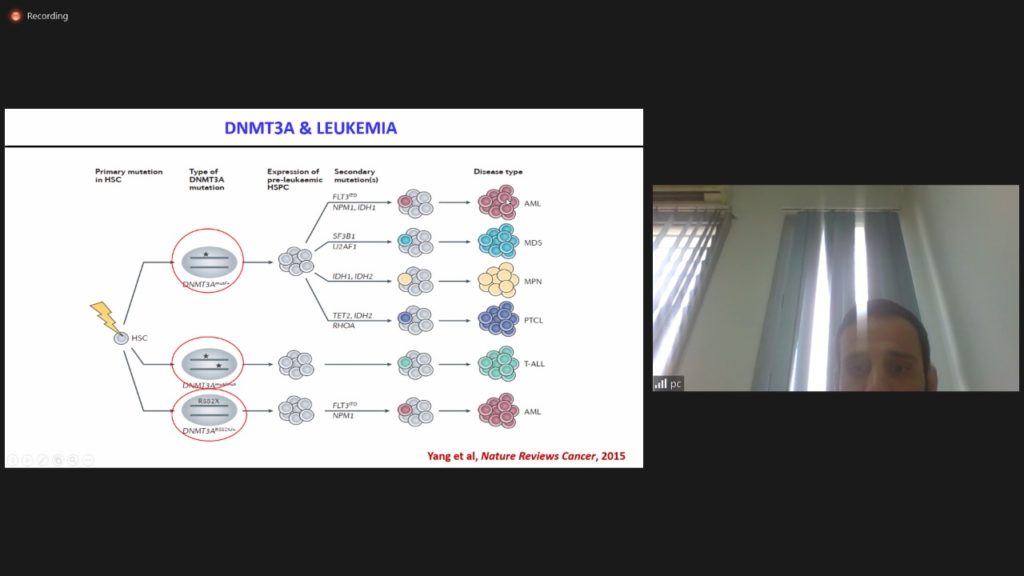

In regards to the involvement of natural bioactive compounds, he described the application of the compounds used currently as epidrugs which target specifically epigenetic biomarkers in human cancer. He shared that several terpenoids, flavonoids and phenolic compounds can target various epigenetic mechanisms involved in gene expression. The mechanism of action of some natural anticancer compounds, including epigallocatechin-3-O-gallate, resveratrol, curcumin, calebin-A, pterostilbene, psammaplins and trichostatin, were also discussed in fair detail.

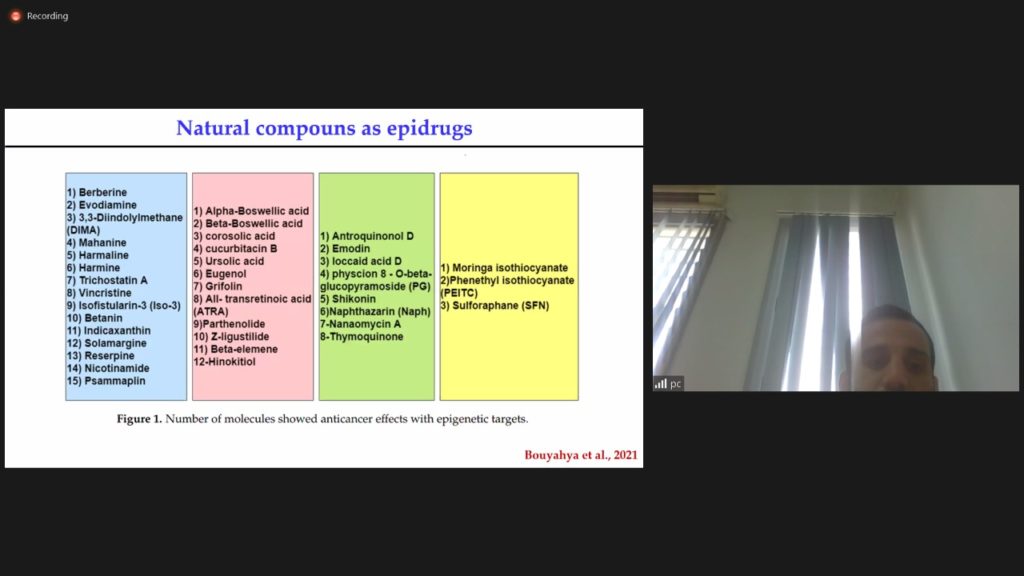
To conclude the webinar, a brief photo session was conducted followed by a question-and-answer session between the audience and Professor Bouyahya, where he shared further exciting insights on the topic discussed. To access the video recording of this webinar, please click this link https://herbal.ubd.edu.bn/seminar-series/.
